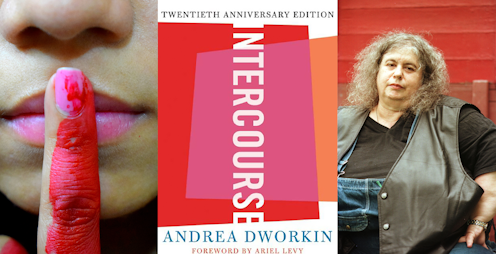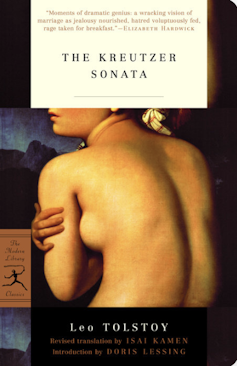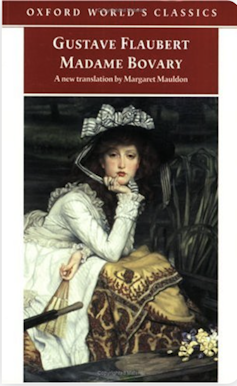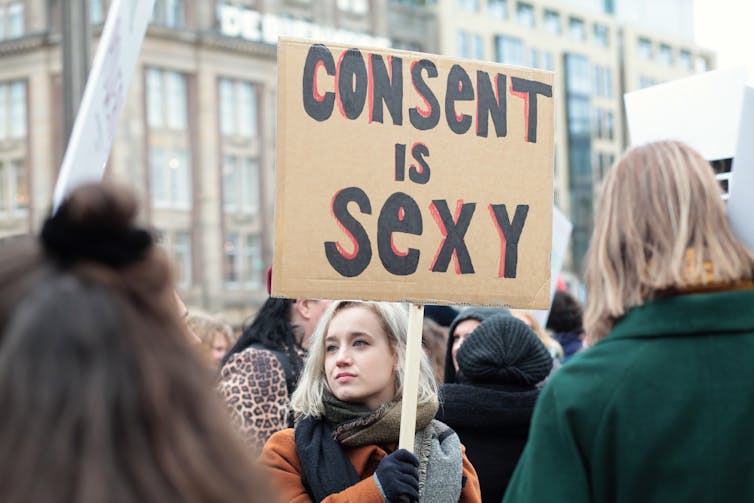
When Andrea Dworkin’s Intercourse hit the bookshops in 1987, it was extolled by Germaine Greer as the “most shocking book any feminist has yet written”.
“Shocking” turned out to be an understatement.
Britain’s Sunday Times described Intercourse as a “crazed” work of “sheer, raving lunacy”. The Wall Street Journal called it “apoplectic”. The Nation caricatured it as a “hate-mongering tantrum […] shackled like an S/M bondage slave to a primitive abhorrence of men”.
The London Review of Books went one step further. Its reviewer attacked Dworkin as an “androcidal” man-hater who was “overweight and ugly” – and, therefore, “can’t be getting enough of it” – before attempting to pass off this misogyny as a joke.
Even the New York Times – published a stone’s throw from Dworkin’s home in Brooklyn – mocked her in a review so withering she responded in a letter to the editor. “I despair of being treated with respect,” she wrote, “let alone fairly, in your pages.”
Looking back, the hysteria attending the book’s reception reveals far more about the trenchant sexism of 1980s society, than it does about Dworkin or her work.
In a preface written nine years later, Dworkin said the book
became – socially speaking – a Rorschach inkblot in which people saw their fantasy caricatures of me and what they presumed to know about me.
The book’s most important themes were all but lost in the reductive framing of Dworkin as “anti-sex” and “anti-men”.
Among those themes was the idea that under patriarchy, sexuality is always experienced as a gendered activity and is always about power. And the idea that – in any society – sexual consent should mean more than just compliance.
It’s a point not lost on a new generation of Gen Z feminists, among whom Dworkin’s work appears to be having a small resurgence.
Dworkin died in 2005, aged just 58. Chanel Contos, the Australian activist behind the Teach Us Consent campaign, draws directly on her ideas in her new book Consent Laid Bare: Sex entitlement and the distortion of desire.
“I think it’s a shame that Dworkin fell out of fashion,” Contos recently told The Guardian.
There’s a string of Dworkin videos, meanwhile, on TikTok. PDFs of her out-of-print books – including Woman Hating and Right Wing Women – circulate freely on sites across the internet.
And unlike feminists of my own generation – for whom Dworkin was, as writer Moira Donnegan once said, “more read about than read” – it’s clear these Gen Z and younger millennial radfems have actually read the texts.
Writing without apology
The furore that marked the publication of Intercourse was perhaps more astonishing considering the book comprises – for the most part – an extended analysis of the works of canonical writers including Leo Tolstoy, Gustave Flaubert, Bram Stoker, Tennessee Williams, and James Baldwin, along with the 12th century Jewish philosopher Maimonides, and the 4th century Christian bishop St Augustine.
And yet, it is anything but tame.
The first thing the reader encounters is the extraordinary energy of Dworkin’s voice. Her spiralling style of argument, as she puts it, mimics a descent into Dante’s fabled “inferno”, leaving few areas of her subject matter unscorched.
Dworkin writes,
Men often react to women’s words – speaking and writing – as if they were acts of violence; sometimes men react to women’s words with violence. So we lower our voices. Women whisper. Women apologise. Women shut up. Women trivialise what we know. Women shrink. Women pull back.
Dworkin did not hold back; she wrote “without apology”.
In a world almost wholly taken up with appearances, she turned up for television interviews just as she was – she didn’t do makeup or manicures or hairstyles or go on kilo-shedding diets or wear edgy or flattering clothes. And this was bizarrely terrifying for some.

Dworkin was also revolutionary in the way she drew publicly, explicitly, and repeatedly on her lived experience of rape, domestic violence, and sex work.
Born in New Jersey, she graduated from Bennington College before travelling to Amsterdam to write about a group of Dutch anarchists. She married one of them. Soon afterwards, Dworkin’s husband began to abuse and humiliate her. He burnt her with cigarettes, beat her legs with wooden sticks, and slammed her head against the floor.
After she left, he stalked her from city to city, making threats. Around this time, Dworkin turned to sex work to support herself. Eventually, she secured a ticket home by offering to work as a drug mule. She also started to write, returning to the US with the manuscript of her first first book, Woman Hating, published in 1974.
In 1965, as a college “freshman”, Dworkin had been arrested at an anti-Vietnam rally and subjected to a brutal internal examination in the notorious New York Women’s House of Detention that left her bleeding for weeks. Decades later, in an essay published in the New Statesman, Dworkin wrote of being drugged and raped in a Paris hotel room in 1999.
The rawness of these accounts may well be what speaks to Gen Z feminists who entered adulthood at the height of the #MeToo movement, at a time when women’s personal testimony of sexual and domestic abuse featured in the media in staggering abundance, and harrowing detail.
Read more: Is the #MeToo era a reckoning, a revolution, or something else?
Pornography
Even Dworkin’s divisive views on pornography seem more relevant to the cultural dilemmas of the 21st century. This is an era in which “male supremacists” and “incels” flourish on 4chan and Reddit, “rape culture” is once again an object of feminist concern, and pornography, much of it expressing contempt for – or actual hatred of – women, constitutes a vast amount of global internet traffic.
Many Gen Z feminists argue radical misogyny demands a radical response. But back in 1987, pornography looked like a marginal issue. And Dworkin’s preoccupation with it seemed strange.
In the 1980s, the rise of “New Right” conservativism and neoliberalism (advocated by Ronald Reagan and Margaret Thatcher) threatened the real political and economic gains made by Women’s Liberation in the 1970s. Dworkin’s work is frequently blamed for splitting the feminist movement into “pro-sex” and “anti-sex” camps at the exact moment the movement came under attack.
And yet, no other feminist of this era could rally a crowd like Dworkin could. Her “Take Back the Night” speeches – such as “The Night and Danger” delivered at the 1978 San Francisco march and later in Los Angeles – are works of spectacular oratory.
But some activists never forgave Dworkin for the strange alliances she built around her anti-pornography campaign, including – at one stage – allying herself with the conservative mayor of Indianapolis to ensure the passage of an anti-pornography ordinance.
The ordinance was partly inspired by Dworkin’s support for actor Linda Lovelace, who reported being raped and abused during the making of the pornographic film Deep Throat. The ordinance was designed to allow women harmed by pornography to sue for civil damages, but was widely construed as an act of censorship, and effectively struck down by the US Supreme Court.
As Dworkin’s friend Michael Moorcroft observed in an article published in the London Telegraph after the publication of Intercourse, the most trenchant attacks on Dworkin came from the Left, including feminists.
Sexual intercourse as an institution
It is a characteristic of Dworkin’s writing that she doesn’t attempt to argue, explain, or defend her ideas. She simply amplifies her points by piling up examples, with ever increasing intensity. This lack of explication – together with her fondness for inventive imagery, rhetorical flourish and drama – makes her work easy to misread or deliberately distort.

Intercourse opens with an analysis of Tolstoy’s The Kreutzer Sonata, a novella about a man who murders his wife, is acquitted in a court of law, then recounts his rationale for the murder to a group of strangers on a train.
Dworkin describes Tolstoy’s work as “dense, passionate, artful, crazed with misogyny and insight”. And yet, her reading might be too charitable for some. What Dworkin seeks to analyse is the way Tolstoy does not locate women’s inequality in the alleged horror of women’s bodies – a stereotypical trope that features in much western literature. Still less, in women’s lack of access to education, legal or property rights. Instead, he locates it in the act of sexual intercourse itself.
Sex – in the strange world of The Kreutzer Sonata – is constructed as a “depraved” practice through which men perpetuate women’s inferiority and women fuel men’s anger, turning them into exploiters. Dworkin writes,
The woman appears to control sex. The man needs it. This causes his rage at her perceived power over him.
Moral culpability is oddly distributed in Tolstoy’s novella. Although Tolstoy’s protagonist feels a measure of remorse for the murder of his wife it is only because he comes to believe that sex had made his wife’s humanity invisible to him; sex had debased him. Tolstoy’s story turns on a masochistic dynamic in which women are blamed for men’s debasement.
Tolstoy’s solution – ironically, for a father of 13 children – is that men and women should not have sex.
Although Dworkin reads the novella against Tolstoy’s real world marriage to Sophia Tolstoy – even recounting his diarised descriptions of sex with his wife as “loathsome, as after a crime” – Dworkin is not interested in Tolstoy’s personal psychology but in his social analysis of sexual intercourse as an institution.
In Tolstoy’s novella, the act of sexual intercourse – full of “hate and horror of woman as such” – allegedly makes the killing “fated”. And the protagonist’s recognition of his wife as human in the aftermath of the murder, allegedly makes the novella – for Dworkin, at least – “sad and tragic”.
Dworkin concedes “this ethos is not contemporary”. But then she surprises the unsuspecting reader by announcing this is because in the modern, patriarchal world hetero-normative sexuality is constructed as wholly violent as it no longer “risks an aftermath of compassion”.
She turns to writers such as Tennessee Williams and James Baldwin to amplify these insights, elaborating the ways in which, for example, Williams’ character Stanley Kowalski in A Streetcar Named Desire rapes his sister-in-law Blanche without being able to recognise his behaviour as rape.
The crime destroys Blanche but leaves Stanley’s character “virtually untouched”.
Read more: #ThanksforTyping: the women behind famous male writers
Prisoners of sex?
Dworkin is also particularly scathing of fictional worlds in which female characters seek liberation through sexual desire. Flaubert’s Madam Bovary – a novel about a provincial housewife who embarks on two extramarital affairs – is cited as the first modern novel not because of its formal aesthetic properties but because it heralded a new cultural attitude. Dworkin writes,
Female freedom is defined strictly in terms of committing forbidden sexual acts. Female heroism is in getting fucked and wanting it.

Dworkin labels this attitude the “new virginity” – a kind of “virginity” that survives both marriage and childbirth, as these things do not necessarily include being “awakened by the adventure of male sexual domination”, defined by Dworkin as perpetual “combat on the world’s tiniest battlefield”.
According to Dworkin, disguising hetero-normative sex as freedom effectively makes women prisoners of sex. Emma Bovary’s pursuit of this alleged freedom taught her to collaborate with domination, not break free of it. Dworkin writes,
It took Freud to call the refusal to fight on that little battlefield ‘repression’ and to name the ambition to fight on the large one ‘penis envy’. The cell door closed behind us, and the key turned in the lock.
An imbalance of power
Critics didn’t just disagree with Dworkin; they actually hated her.
They took every opportunity to conflate Dworkin’s distinction between the social construction of male power and actual men. And between the idea of sexual intercourse as a social or ideological institution and a person’s individual experience of it.
The book was relentlessly read to mean “all sex is rape”, which is not something Dworkin ever said, and repeatedly denied, including in the text of Intercourse. As she told the New Statesmen in 1995,
[…] Since the paradigm for sex has been one of conquest, possession, and violation, I think many men believe they need an unfair advantage, which at its extreme would be called rape. I don’t think they need it. I think both intercourse and sexual pleasure can and will survive equality.
Her book Intercourse attempts to show the way in which society thinks, writes about, represents and, practices, sexual intercourse eroticises an imbalance of power. Dworkin’s central argument is that the practice of intercourse – in an unequal or patriarchal society – makes contempt for women sexy.
She writes,
when intercourse exists and is experienced under conditions of force, fear, or inequality, it destroys in women the will to political freedom; it destroys the love of freedom itself. We become female: occupied […]
In Intercourse, Dworkin sets out to expose the power dynamics that underpin sexual relationships. She does this in order to change them. In this sense, the book might be best understood as an attempt to create a new sexual ethics.
In the 1990s, Dworkin was among the handful of feminists to publicly call out former US president Bill Clinton for preying on 22-year-old White House intern Monica Lewinsky. “People are characterising this as a sexual scandal,” said Dworkin, “but it’s an abuse-of-power scandal.”
Post #MeToo, the correctness of Dworkin’s analysis is glaring. In fact, many of Dworkin’s ideas – such as affirmative consent – no longer look radical.

What critics also miss in discussions of Dworkin’s work is there is always a vision in her books that society – and, indeed, sexual intercourse – could be otherwise. There is a clear recognition of sex and tenderness as a human need, and of sex as an act in which
the deepest emotions one has about life as a whole are expressed, even with a stranger, however random or impersonal […]
In Intercourse there is an almost utopian aspect to her treatment of sexual intimacy as a relationship in which there might be
no physical distance, no self-consciousness, nothing withdrawn or private or alienated, no existence outside physical touch. The skin collapses as a boundary — it has no meaning; time is gone – […]
Even strident critics such as writer Laura Kipnis acknowledge Dworkin was a “great philosopher of the bedroom”.
A cultural provocateur
Gen Z appear to be quite open about owning who they are and insist on being recognised accurately as such by society, a sentiment which is conspicuous, for example, in their widespread adoption of correct pronouns. They also care a lot about inclusivity.
Part of Dworkin’s appeal for Gen Z radfems may well be that she was non-binary, trans-inclusive, and ahead of her time in calling for reforms such as access to gender affirming care. Or, as Gen Z would put it, she wasn’t a TERF (Trans Exclusionary Radical Feminist), although she was a bit of a SWERF (Sex Worker Exclusionary Radical Feminist).
Dworkin was also quick to understand the racist application of sexual assault laws, and to call out the criminalisation and mass incarceration of African American men. As she told the “Take Back the Night” rally in Los Angeles,
In the United States, with its distinctly racist character, the very fear of the dark is manipulated, often subliminally, into fear of black, of black men in particular, so that the traditional association between rape and black men that is our national heritage is fortified […] Night, the time of sex, becomes also the time of race — racial fear and racial hatred.
Dworkin was a cultural provocateur; a one-woman event; a feminist intellectual who, in her own time, was mostly just famous for being herself.
Words were part of her arsenal, and linguistic excess was a deliberate political strategy. Her books don’t follow the familiar rules of explication and argument. Instead, they challenge the reader to reflect, to question, to rethink accustomed habits of thought. This is a necessarily uncomfortable process.
It is well past time for a revaluation of her legacy.
Camilla Nelson does not work for, consult, own shares in or receive funding from any company or organisation that would benefit from this article, and has disclosed no relevant affiliations beyond their academic appointment.
This article was originally published on The Conversation. Read the original article.







